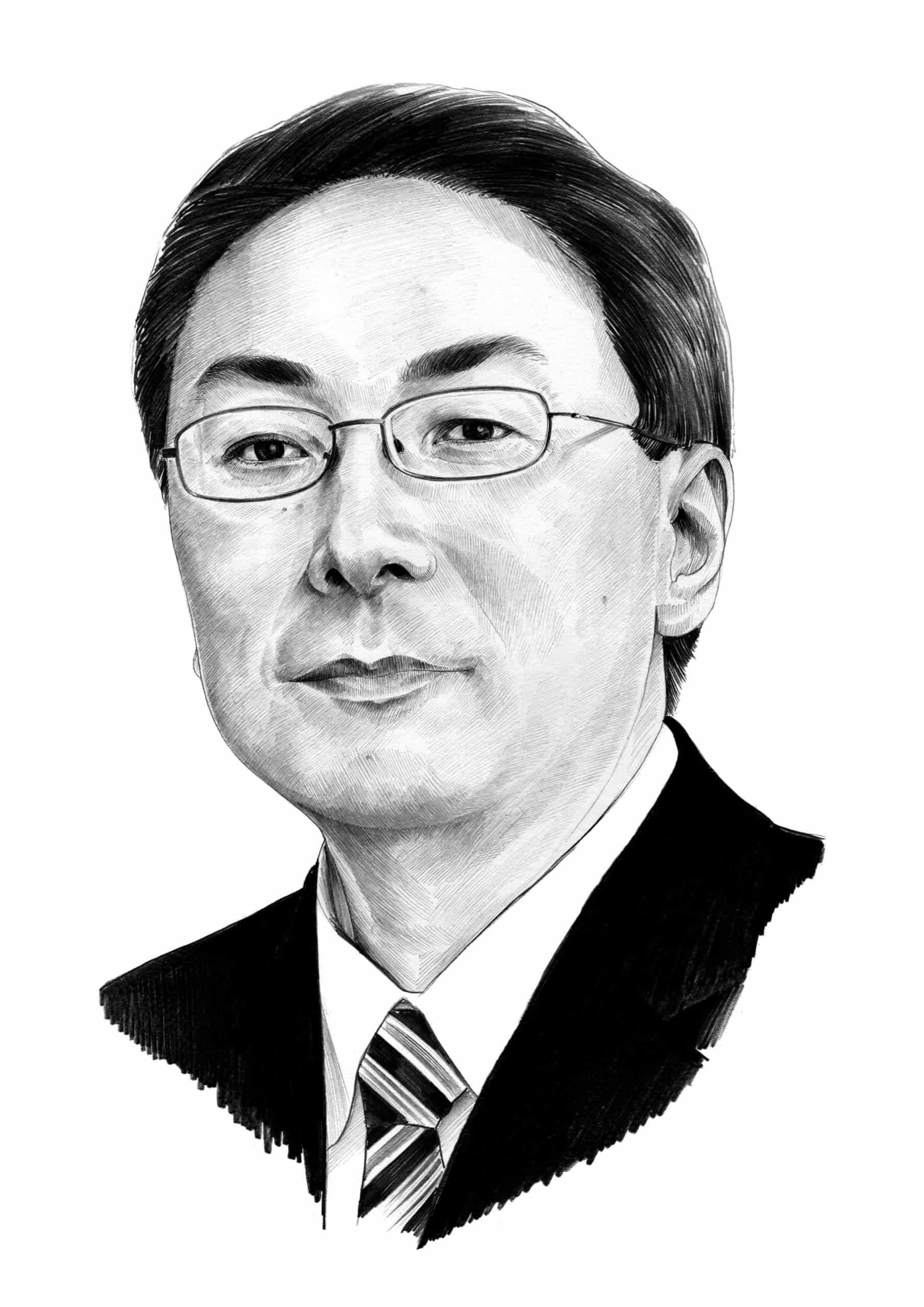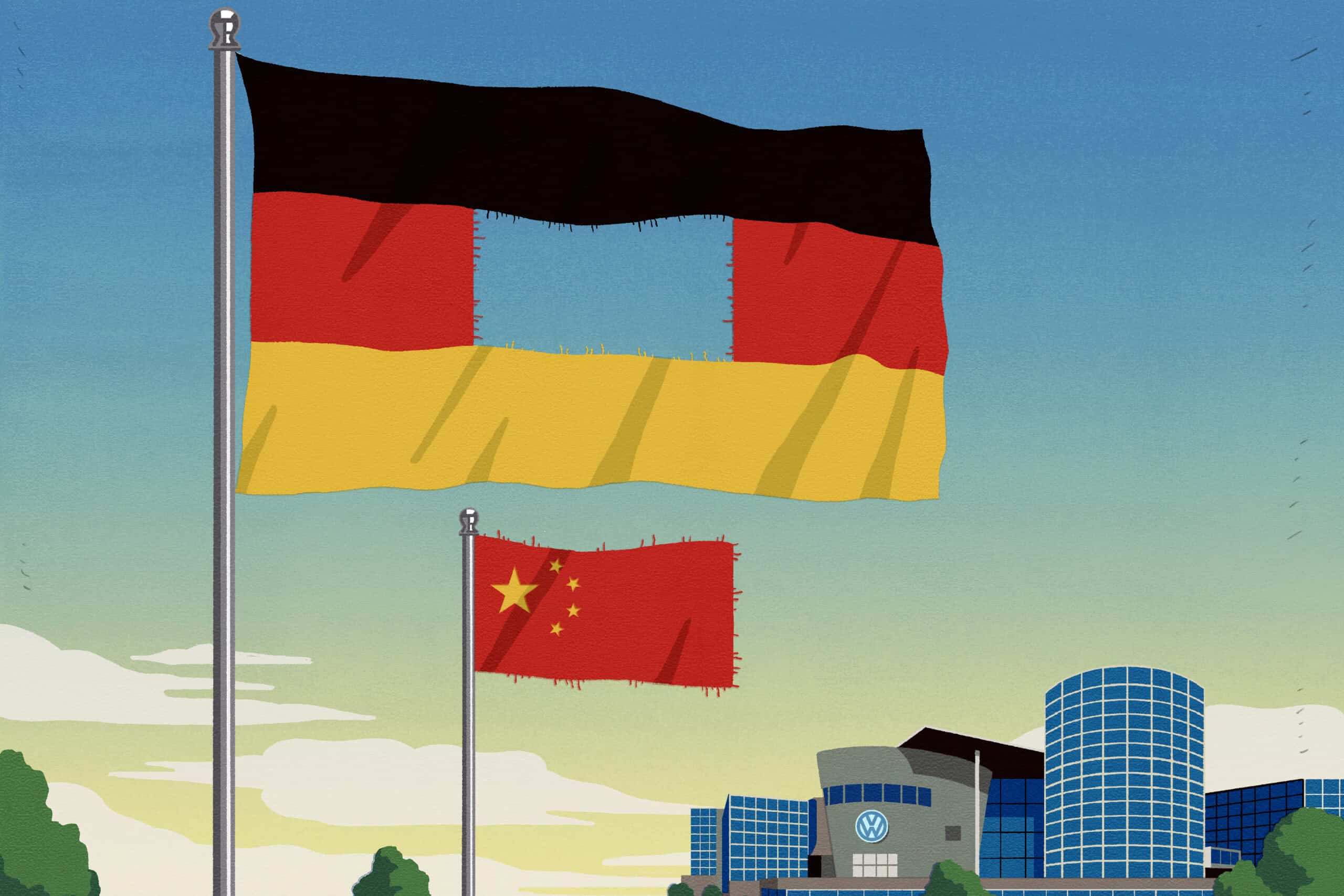Yanzhong Huang is an expert on Chinese and global health issues, particularly health governance and security. He is a senior fellow for global health at the Council on Foreign Relations and a professor and director of global health studies at Seton Hall University’s School of Diplomacy and International Relations. Huang has a bachelor’s and master’s degree from Fudan University in Shanghai and a Ph.d from the University of Chicago. Last week, his article, “The Myth of Authoritarian Superiority: China’s Response to Covid-19 Revisited,” was published in the China Leadership Monitor. He is the author of numerous books and scholarly articles, most recently Toxic Politics: China’s Environmental Health Crisis and Its Challenge to the Chinese State (Cambridge University Press).

Illustration by Lauren Crow
Q: Is it important that we discover the origins of the pandemic?
A: Yes, if we really want to find the origins of the pandemic — which is important to understanding not just the current but future pandemics — we need to depoliticize matters and stop the blame game. I have been working on a memo about how the U.S. and China might cooperate on global health security. Transparency is the key for effectively dealing with pandemics or any other disease outbreaks. And this has been very different from the SARS situation, where you had the entire [Chinese] leadership realize that transparency was the key to addressing future outbreaks. So there was a short period of time where there was cooperation and transparency [between China and the U.S.].
Now, the context is different. China has become stronger economically. But even though they have successfully contained the [Covid] outbreak, which they say shows the superiority of the China model, they also feel very insecure. You’ve got a deteriorating international environment, so it seems like international public opinion is very much against China right now. And China’s leaders see this as a national security threat. They need to protect and maintain Communist Party rule. That’s a core national interest. So Western leaders might need to accommodate that concern if they want to see a more transparent China. That might be impossible in the current political environment.
| BIO AT A GLANCE | |
|---|---|
| AGE | 52 |
| BIRTHPLACE | Jiangsu Province, China |
| CURRENT POSITION | Professor, Seton Hall University School of Diplomacy and International Relations; Senior Fellow for Global Health, Council on Foreign Relations |
| PERSONAL LIFE | Married |
U.S.-China relations have been deteriorating and Covid-19 seems to have made things much worse. Where do we go from here?
I still believe there is a way out of this. We need more quiet diplomacy and less finger pointing. Naming and shaming is not going to solve the problem or improve the situation. Behind closed doors, the different sides need to say, “Here’s what we’re going to do. We don’t want to embarrass each other.” The U.S. has to find a solution without compromising its national interests and China wants to find a way to save face.
What is the most important rule in cooperating over public health? It’s to do no harm. The U.S. should stand firm against aggression, particularly if China is posing challenges to the rules based international order. But before we make a move, we should consider whether what we do will actually solve the problem or cause even more harm.
How important is China’s role in helping get the rest of the world vaccinated?
China’s role will be critical considering that India is no longer exporting vaccines and that Russia’s production capacity remains limited. The United States is going to release 80 million doses of its surplus vaccines. But you can’t expect these vaccines to be sufficient to solve India’s or Brazil’s problems. China is the largest exporter: It has shipped 300 million doses. They are ramping up production, so that they now have a daily manufacturing capacity of at least 12 million. And they’re accelerating the domestic vaccination campaign in order to reach the objective of vaccinating 70 to 80 percent of the population by the end of the year.
But isn’t China in an odd position now because they don’t really have very many Covid cases?
That’s a real dilemma for China’s leaders. I was hoping the United States and China could cut a deal. Since China has few cases, they might consider focusing this vaccine supply on meeting international demands in the coming months. And in return, the U.S. could agree to support the sharing of mRNA technology with China. You may have heard that Fosun is building a factory in Shanghai, hopefully to produce Pfizer/BioNTech’s vaccines. One good thing about the mRNA technologies is that they allow speedy vaccine scale-up. And they can be very flexible in terms of dealing with the new strains, because all it takes is a couple of weeks to redesign the vaccines to handle new strains; so that could make it attractive for the Chinese. But the most important thing about mRNA virus is its high efficacy rate, which enables the U.S. to achieve herd immunity when 70 percent of its population is vaccinated. In China, even though it reaches the same vaccination rate, it might still be difficult to claim herd immunity, because theoretically a country needs to vaccinate the entire population if it uses vaccines with lower than 80 percent efficacy rate.
Huang spoke on a panel at his university about the future of global health security.
Why isn’t there a global effort to share vaccines and vaccine technology, or the IP, to give every country capable of it the ability to mass produce their own vaccines?
We’ve got the IP waiver issue [the debate over whether the intellectual property rights of vaccine makers should be waived to allow other nations with no access to a Covid-19 vaccine to win the rights to manufacture a vaccine]. But clearly it seems that access to raw materials is a more serious problem than the IP waiver. I think vaccine makers like Pfizer are not concerned about immediate competition from other vaccine makers in the international market. The biggest constraint is not the technology but the raw materials access, which now is essentially controlled by the United States.
I think they are also concerned that the IP waiver may set a precedent for the future. Remember, Pfizer didn’t ask the United States government for money to develop their vaccine. So they’re afraid that when you have a similar public health emergency in the future, you would be pressured to share your technologies with the entire world; that the incentive to innovate would be significantly reduced.
You write in your recent book about China’s environmental challenges. You wrote that the country’s challenges with pollution have caused big economic losses, and that this is a social problem for Beijing. How so?
Well, if we calculate the losses using the World Bank data, China probably lost up to 18 percent of GDP to pollution in recent years, and this has political implications. Now, people put greater value on health and clean air. As a country becomes more prosperous, these are the things that increasingly matter to people. So if the government fails to meet people’s expectations in these areas, this is going to have implications for political legitimacy. Some people may choose to leave the country; some may protest or show resistance; and some may turn their back on the government. There are international implications as well. Diseases and pollution from China can spread to other countries, including the United States. So given all those political, economic, social and foreign policy implications, the Chinese government has incentives to fix these problems. And if they fail to do a good job, as Xi Jinping himself has admitted, people may question the legitimacy of CCP rule.
China probably lost up to 18 percent of GDP to pollution in recent years, and this has political implications. Now, people put greater value on health and clean air.
How have they done in this regard?
China’s ability to handle environmental and public health crises shows its ability to take decisive action when political leaders perceive a crisis is looming. It also shows the robust ability of the state to penetrate its territories and implement their decisions. We saw that with China’s population control efforts [under the one child policy]. We are seeing that in its pollution control and pathogen control. Indeed, in addressing China’s environmental or public health crises, the state’s ability has been further strengthened by the re-creation of bandwagon policy, under which local government officials have strong incentives to jump onto President Xi’s bandwagon to show their feverish support of Xi’s favored policy agenda. It is impressive to note that China managed to cut the PM2.5 density by 50 percent between 2013 and 2019, which took more than two decades for the U.S. to achieve after the passage of the Clean Air Act. It is also impressive that the government was able to quickly stabilize the situation in the spring of 2020 and sustain an extremely low level of Covid cases.

How does China score in health and environmental governance?
If we look at the big picture of policymaking and implementation in China, whether it is pollution control, pathogen control or population control — the three Ps — the state is remarkably resilient but also fundamentally flawed. Despite more than three decades of reform and opening, the public policy process is still fundamentally no different from that in the Mao era. It remains top-down, non-participatory, and mobilizational.
Not surprisingly, when it is applied to pathogen or pollution control, the downside of this approach is equally glaring. Basically, it leads to a by-all-means and at-all-costs approach that focuses on the single-minded pursuit of stipulated policy objectives. It is often associated with second-order problems and unintended consequences.
In the case of pollution control, the government campaign to convert coal-burning heating and cooking to cleaner fuel-burning systems created shortages in gas in some regions that left millions without proper heating in freezing temperatures. Similarly, draconian Covid containment measures led to the weakening of access to run-of-the mill healthcare, encroachment on civil liberties and human rights, and blows to the manufacturing and service sectors. This approach ultimately also faces diminishing return problems and is not sustainable.
Despite more than three decades of reform and opening, the public policy process is still fundamentally no different from that in the Mao era. It remains top-down, non-participatory, and mobilizational.
This is exactly the dilemma China’s zero-infections policy is now facing. Despite the impressive mass vaccine rollout — they made a record by administering 20 million doses in one day — there are still no signs that the government will relax the policy of not tolerating any Covid cases. Even the identification of a single Covid case — however mild it is — will trigger multiple rounds of mass testing, aggressive contact tracing, and sealing off cities or neighborhoods. It still clings to such an approach even though the U.S., through successful vaccine rollout, is seeing life going back to normal. In that sense, China’s strength is also its weakness.
| MISCELLANEA | |
|---|---|
| BOOK REC | The Plague Year: America in the Time of COVID by Lawrence Wright |
| FAVORITE MUSIC | Classical music |
| FAVORITE FILM | Forrest Gump |
What you’re describing is interesting, and I wonder if there is a deeper issue. Beijing seems to truly dislike the idea of a free press, of transparency and public accountability. They don’t want what they view as a western-style system but would rather deliberate behind closed doors and work through a more closed, authoritarian system. If this is true, wouldn’t that suggest that China has little interest in playing by what they view as western governance rules?
Well, nowadays liberal democracies are widely viewed by people in China as being incompetent or incapable of dealing effectively with disease outbreaks. They think what has occurred during the pandemic clearly shows the superiority of their system. It gives them more confidence to support their own system.
But we are basically talking about one observation point. That doesn’t necessarily mean that the system is going to succeed or fail in dealing with all disease outbreaks. A closer look would still reveal the inability of the authoritarian system to effectively handle the outbreak in the beginning stage. We are not just talking about the mistakes that any country could make in handling a novel coronavirus. We are talking about mistakes such as systematic coverup and suppression of social participation. We need more transparency, and we need more social participation. This is different from what we saw with the government response to the SARS epidemic. There is no urgency this time to promote transparency or civil society participation, which is a concern because such a tragedy could be repeated in the future. In some ways, tackling the Covid crisis is a perfect example of China’s strengths, and its weaknesses.

David Barboza is the co-founder and a staff writer at The Wire. Previously, he was a longtime business reporter and foreign correspondent at The New York Times. @DavidBarboza2



